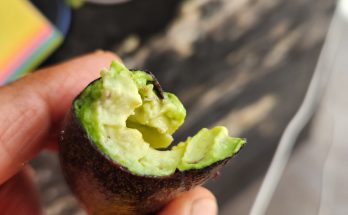By Bernardo Moreno
The place called La Cámara is still present in the collective imagination. It took place in one of the first supermarkets of San Miguel de Allende, and was an inclusive place free of taboos, where you could interact openly, without labels. Marian Garcés Torres was one of the main promoters of that movement. “They” has collaborated and managed different projects throughout their life that support the queer, trans, non-binary community. It gives me great pleasure to present this interview, which explores their trajectory and what they is currently doing.
BM: What does queer mean in Mexico?
MG: At present, it seems to me that the term is undergoing a radical deconstruction that is turning it into a tool for criticizing the binary system of the sexes and the use of the physical body for the purpose of social indoctrination.
I love the question, because issues like queer/kuir require a local context to be understood/lived. In Mexico, it seems to me that many of us, performers and non-performers, are embodying the term in a very performative way.
I have had the pleasure of collaborating on projects in Bogotá, Montevideo, and New York City, among others. Although queer is also there, it is a completely different narrative than in Mexico. In Mexico we have historical examples, such as the muxes (third gender) in the state of Oaxaca.
In contemporary terms, it seems to me that what is written/produced in terms of theory is associated more with the physical and social body that surrounds us. We are inevitably part of our environment, but we also influence it.
BM: Can you tell us what a supermarket to set up La Cámara and La Romería meant for people in San Miguel and the importance of having inclusive places?
MG: I think La Cámara was just a set of infinite narratives. Each person who came there told their own story. For me, it was the most powerful collective experience ever, and remains so. It was an open space, radically free and beautiful. Many people told me that they finally felt at home, or something like that. It was cheesy and romantic. I remember there was one sigh after another.
Most of us are still chasing that movement with independent projects, many of them quietly strong, others more showy.
La Romería is an agroecological market that still exists. It is a market/space free of cruelty and exploitation.
There are open, accessible projects for all the audiences that link us as a society. To me they seem essential in the art and cultural scenes. If it doesn’t itch, if you don’t scratch, if it doesn’t change something, then it’s just decorative, and I’ve never done that. I respect that, but at the same time it is where you can talk about all the bullshit we experience locally and globally.
BM: You have dedicated a good part of your life to the queer, trans, non-binary community. Can you tell us about some achievements you have had through culture and art?
MG: I think a major production was at the Queens Museum in New York City. We organized a talk on cumbia (a dance), love, and Latin American-ness in 2013. It was the first cumbia event in a formal art space. Cumbia came to a museum.
I believe that each space I have created has been, or has sought to be, a safe space for the queer, trans, nonbinary community, from La Santa, a mezcalería that I had in Cholula, to La Cámara, La Romería, and every event that I produce. I always look for a way to be of service to my community, to give my best. And to receive in return a space in which my friends can coexist and celebrate.
BM: It is very important to have a historical memory. Can you explain to us the research or living archive called Cartograma Americana (American Cartogram)?
MG: Cartograma Americana began 10 years ago as a response to the abrupt closure of La Cámara. I understood that the mission was to generate these safe spaces for more people. Cartograma Americana turned me into a living archive that records queer, trans, nonbinary Latin American narratives.
We made a documentary in 2019 in partnership with the Autonomous University of Querétaro. This year we are presenting a second short and the feature film of that production, directed by Meli Marcow, from Argentina. We are constantly looking for funds and resources to replicate the undertaking in Colombia, Brazil, and Guatemala.
I show up wherever they invite me that has the right vibe… I present what I’ve heard, my own short films, and those of my collaborators.
BM: What is “Fragmentos de una subversión” about and where can we find it?
MG: “Fragmentos de una subversión” is a fanzine that tells the behind-the-scenes story of the filming of the documentary in 2019, and narrates my transition to masculine pronouns. Rosa (Editorial Invertidas) converted the text into a fanzine/object art piece last year. It’s the cutest fanzine I’ve ever seen. We loved it so much that we toured this year to present it in Cholula, CDMX, and Bacalar, Mexico; Livingston, Guatemala; and San José, Costa Rica. We are about to confirm a date in San Miguel de Allende for the beginning of October.
The presentation is comprised of live readings accompanied by audiovisuals from Cartograma Americana. The experience culminates with Rosa’s powerful workshop on the embodiment of fanzines. The fanzine is available through Editorial Invertidas.
To find out about upcoming presentations, projects, and more, look for Marian on Instagram @iverna.iverna




